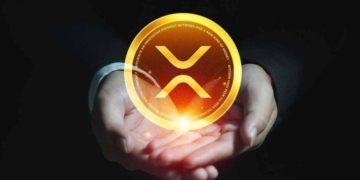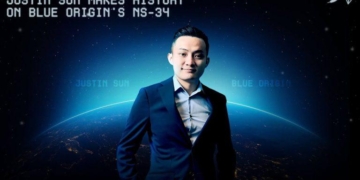Would you like to work nearly double the standard 40-hour week? It’s a question that many startups in the US are asking prospective employees—and to get the job, the answer needs to be an unequivocal yes. These companies are embracing an intense schedule, first popularized in mainland China, known as “996,” or 9 am to 9 pm, six days a week. In other words, it’s a 72-hour work week.
The 996 phenomenon in China gave rise to major protests and accusations of “modern slavery,” with critics blaming the schedule for a spate of worker deaths. Despite the negative connotations overseas, US firms, many of them working on artificial intelligence, are adopting both the schedule and its nickname as they race to compete against each other—and with China. Adrian Kinnersley, a serial entrepreneur who runs both a staffing and recruitment company and an employment compliance startup, has been surprised by how many startups are going all-in on 996. “It’s becoming increasingly common,” he says. “We have multiple clients where a prerequisite for screening candidates before they go for an interview is whether they are prepared to work 996.”
At the beginning of the Covid pandemic, conversations about conditions for workers in the United States often centered around burnout and the need for increased flexibility. Even in the notoriously hard-charging tech sector, companies began emphasizing efforts to facilitate a balanced schedule. Now, the surge in interest in 996 demonstrates the pendulum has swung the other way. It echoes Elon Musk’s “extremely hardcore” ultimatum to X employees, which encouraged them to work punishing hours.
Companies aren’t having trouble finding willing employees, and some frame it as core to their work culture. Rilla, an AI startup that sells software designed for contractors (like plumbers) to record conversations with prospective clients and coach them on how to negotiate higher rates, says nearly all of its 80-person workforce adheres to the 996 schedule.
“There’s a really strong and growing subculture of people, especially in my generation—Gen Z—who grew up listening to stories of Steve Jobs and Bill Gates, entrepreneurs who dedicated their lives to building life-changing companies,” says Will Gao, the company’s head of growth. “Kobe Bryant dedicated all his waking hours to basketball, and I don’t think there’s a lot of people saying that Kobe Bryant shouldn’t have worked as hard as he did.”
Rilla is up front about its expectations. In current job listings, it explicitly states that workers are expected to log more than 70 hours a week, warning them not to join if they aren’t “excited” about the schedule. Breakfast, lunch, and dinner are provided at the office every day—even on Saturdays.
Amrita Bhasin, the CEO of AI logistics startup Sotira, says that it’s common for Bay Area founders to adopt the schedule as they grow: “The first two years of your startup, you kind of have to do 996,” she says. While Bhasin sees the demanding workload as essentially mandatory for company leaders, she doesn’t think that rank-and-file employees should be expected to keep pace: “I don’t think it’s fair to push it onto them.”
Some founders pitch the schedule as an option for their most devoted employees, creating a two-tiered structure where only some employees are expected to work the extra hours. Ritchie Cartwright, founder of the San Francisco–based telehealth company Fella & Delilah, recently posted about a message he’d sent to employees on LinkedIn, outlining his efforts to shift some of his current staff to a 996 schedule. To entice workers to get on board, Fella & Delilah offered a 25 percent pay increase and a 100 percent increase in equity to willing participants. Just under 10 percent of the staff has signed up, the LinkedIn post claimed. (Cartwright did not respond to requests for comment.)
In 2021, after years of increasing pushback from workers, the Chinese government cracked down on the widespread 996 practice, which was technically illegal but seldom enforced. While still commonplace in the tech sector, some companies have backed off, at least publicly.
Globally, though, 996 appears to be on the rise. This summer, UK-based venture capitalist Harry Stebbings helped spur a lively debate over the trend’s adoption when he argued that 996 might not be enough—and that truly ambitious startups might need to go even harder to keep up. “The truth is, China’s really doing ‘007’ now—midnight to midnight, seven days a week, and they just have a rotational workforce,” he says. “If you want to build a $100 million company, you can do it on five days a week. But if you want to build a $10 billion company, you have to work seven days a week.”
Stebbings says US-based companies and their employees are currently far more enthusiastic about 996 than their European counterparts. “People in Europe seem shocked when you ask them to work the weekend,” he explains.
Adrian Kinnersley, the entrepreneur who runs a staffing and recruitment startup, has been alarmed by how many companies pushing 996 appear to be “wildly noncompliant” with US labor laws. While many employees in the tech sector may be exempt from overtime pay, Kinnersley says he has seen some companies not even bothering to issue employee classifications. “California is the epicenter of AI, and where a lot of the 996 culture is coming from, and it has the most employee-friendly employment law in the whole United States,” he says. “There’s almost a hysteria in the rush to create AI products, and a lot of very young, highly intelligent people, in their fervor, are forgetting all the risks they’re creating, all the massive liabilities.”
Despite his reservations, he doesn’t think the work schedule is going way anytime soon in the United States. “I just registered the domain 996careers.com,” he says.













